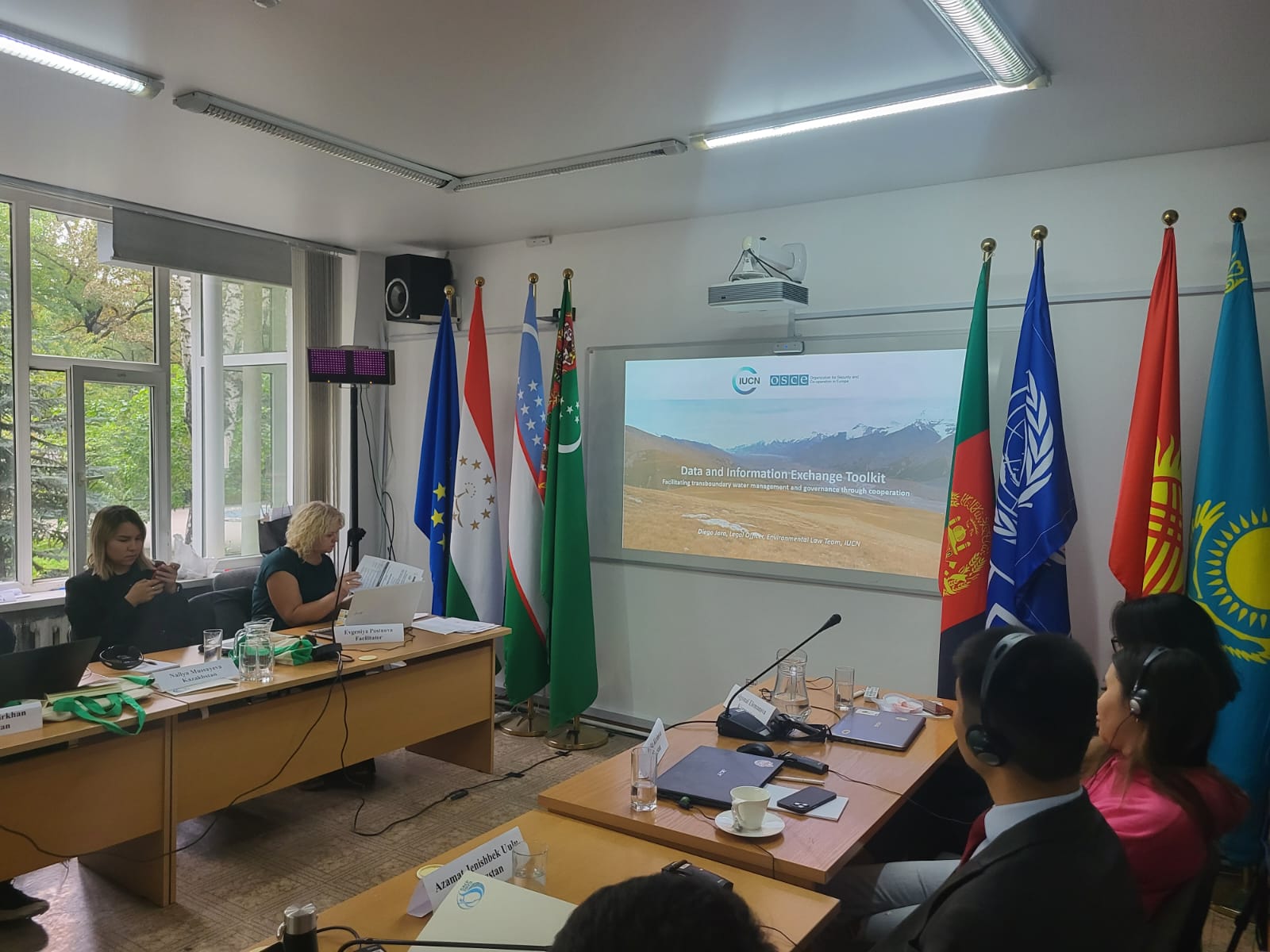On September 18, 2023, the opening ceremony of the 13th Central Asian Leadership Program (CALP) took place at the headquarters of the Regional Environmental Center for Central Asia (CAREC) in Almaty. The theme of this year's CALP was "Central Asian Leaders: Engaging Youth in Implementing National Priorities in Climate Change, Regional Cooperation, and Climate Financing for Sustainable Development."
This year, CALP brought together 17 young professionals representing government institutions, the private sector, and civil society in the fields of climate change, water resource management, and green economy in five Central Asian countries.
.jpeg)
CALP, an annual initiative by CAREC since 2012, aims to implement national priorities in climate change, regional cooperation, and climate financing for sustainable development. This year, the program is conducted with the support of the Swiss Blue Peace Central Asia Initiative, the OSCE Office of Programs in Astana, the World Bank, and the Coca-Cola Foundation.
The program's first day featured a Water Day, during which participants attended lectures by international experts in water diplomacy, gender equality, and sustainable development.
During the first session, which focused on state management in the water sector, participants were introduced to the approaches of Integrated Water Resources Management (IWRM), progress in implementing IWRM practices in Central Asia, and discussed the main constraints to sustainable cooperation among regional countries in transboundary river basins.
Mr. Bo Libert, an SDC consultant, presented the Water Footprint Assessment methodology and its application results in Central Asia. This methodology allows the assessment of water usage efficiency at the basin, country, or regional level, which is crucial for sustainable water management. It also helps track how changes in agricultural crop production affect the economic value of water.
In the second session on water diplomacy, Mr. Kerry Schneider, Senior Programme Manager, Stockholm International Water Institute (SIWI), provided an overview of the theoretical aspects of hydro-diplomacy, emphasizing the importance of multi-vector diplomacy in expanding the diplomatic space for engaging stakeholders. Practical cases of successful transboundary water cooperation in the Tigris River basin by Ms. Burcu Çalli of the Water Institute (SUEN) of the Ministry of Agriculture and Forestry of Turkey, as well as in the Orange and Vaal rivers by Dr. Zodwa Dlamini, an independent consultant and ex-delegate to the Water Commission of Lesotho, were presented.
One of the innovative tools introduced during the session was the Blue Peace Index by Mr. Matus Samel from Economist Impact. This index measures the extent to which countries and basins are prepared to manage shared water resources sustainably, equitably, and cooperatively. The index assessment was conducted for the Syr Darya and Amu Darya River basins, allowing for a comprehensive exploration of the driving forces and necessary conditions for sustainable cooperation in the use of shared water resources.
.jpeg)
During the "Water and Gender" session, Dr. Saule Ospanova, Senior Environmental Adviser at the OSCE Vienna, outlined the OSCE's activities to promote gender equality and expand opportunities for early-career women in the water sector in the region. She introduced the Network "Women in Water Management in Central Asia and Afghanistan," which was established with the support of SIWI and CAREC in 2021.
Dr. Ospanova highlighted several tools presented on the OSCE e-learning platform to enhance the potential of young water practitioners.
As part of the efforts to digitize the water sector, the OSCE, in partnership with the International Union for Conservation of Nature (IUCN) and the Swiss Agency for Development and Cooperation (SDC), has developed innovative tools for data and information exchange to promote transboundary cooperation. This toolkit was presented by Mr. Diego Jara, the Environmental Law Centre of IUCN.
During his presentation, Mr. Jara emphasized the importance of data exchange regarding the availability and structure of water resources. Such data exchange enhances transparency and accountability in water resource management, thus strengthening trust and cooperation among riparian countries. Furthermore, a comprehensive understanding of the issues, priorities, and interests of countries in managing transboundary waters is crucial for developing effective management plans, programs, policies, laws, and agreements related to water.
It is expected that this digitalization guide will assist countries in developing their own approaches to engage key stakeholders in hydrological and climate monitoring and assessment processes using
innovative technologies.

Mrs. Shokhida Tulieva, a gender expert in the Republic of Tajikistan, delivered a presentation on the existing mechanisms for promoting gender equality and youth involvement in water resource management in Tajikistan, particularly focusing on the Basin Women's Forum experience.
Over the next four days, CALP participants will have the opportunity to engage in a series of interactive sessions designed to expand their knowledge and network in the thematic areas of CALP. Presentations and publications from the 13th CALP will be available on the CAREC website and on CAREC's social media channels.
For additional information: Please contact Tais Reznikova, Program Manager of Water Initiatives Support Programme at CAREC, treznikova@carececo.org.
